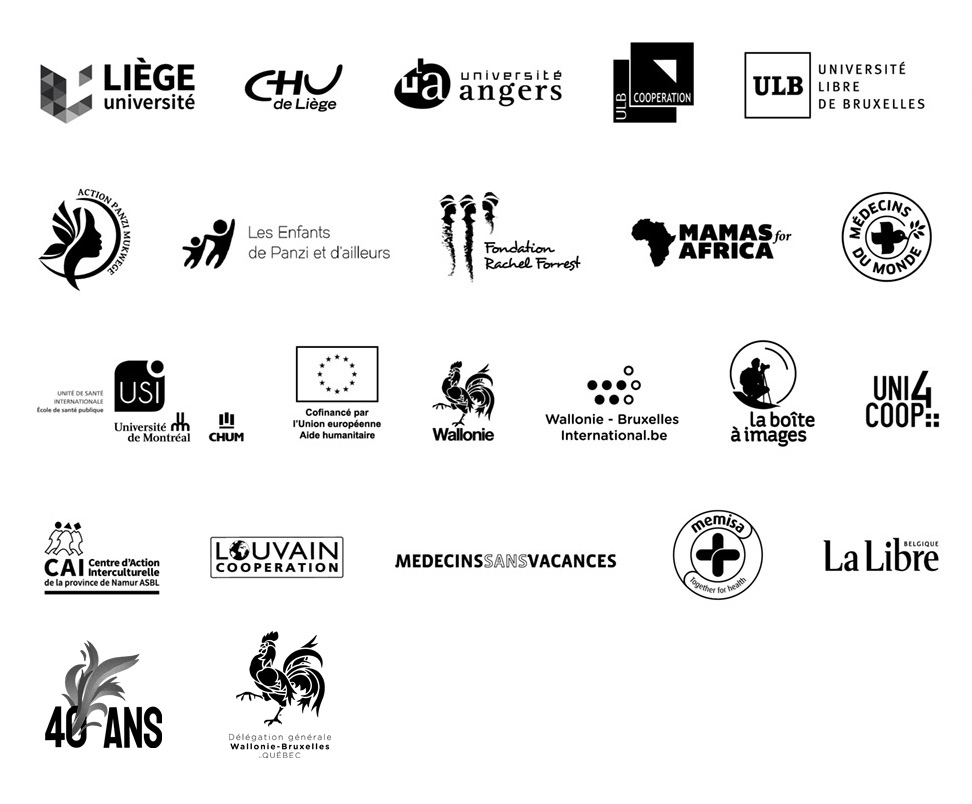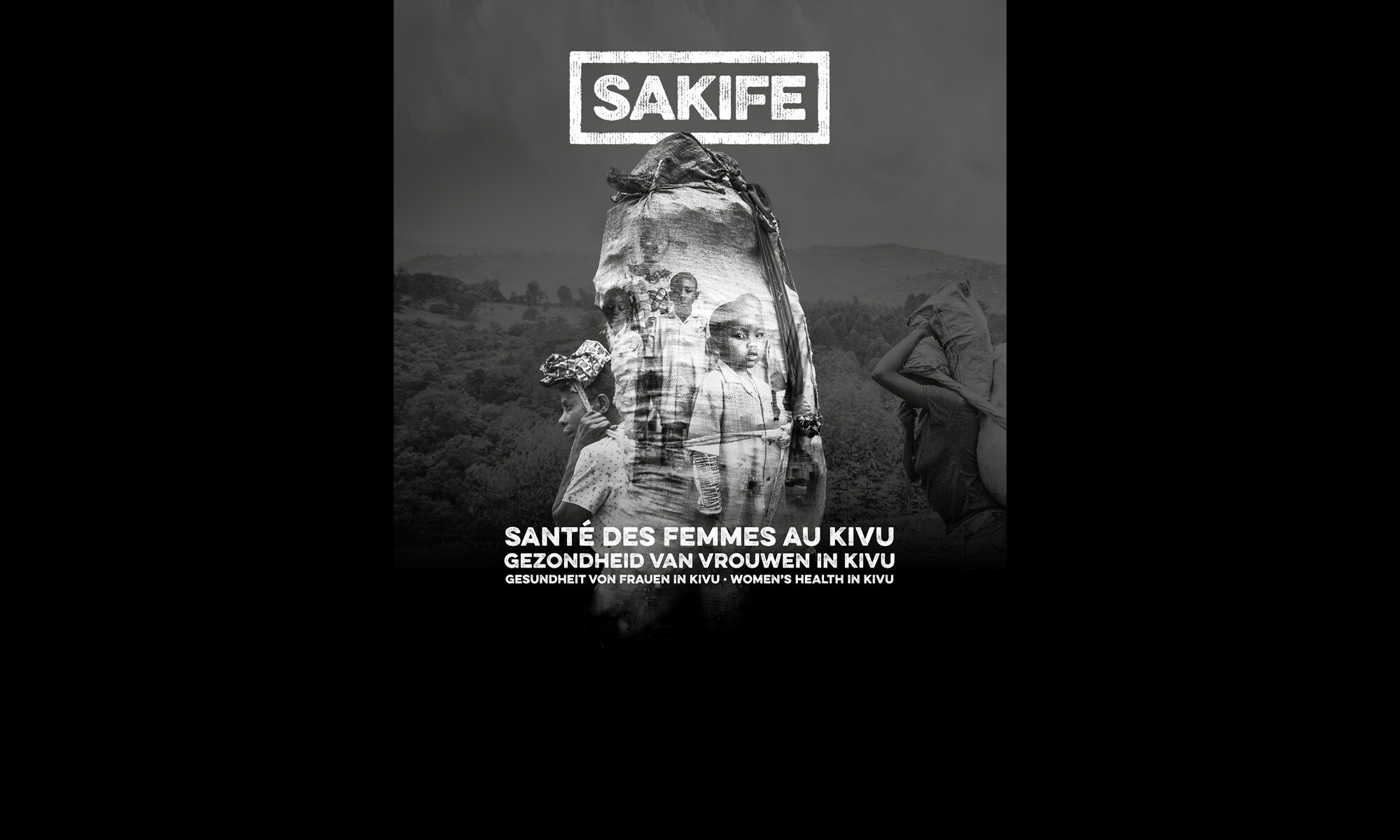Women, pillars of Eastern Congo
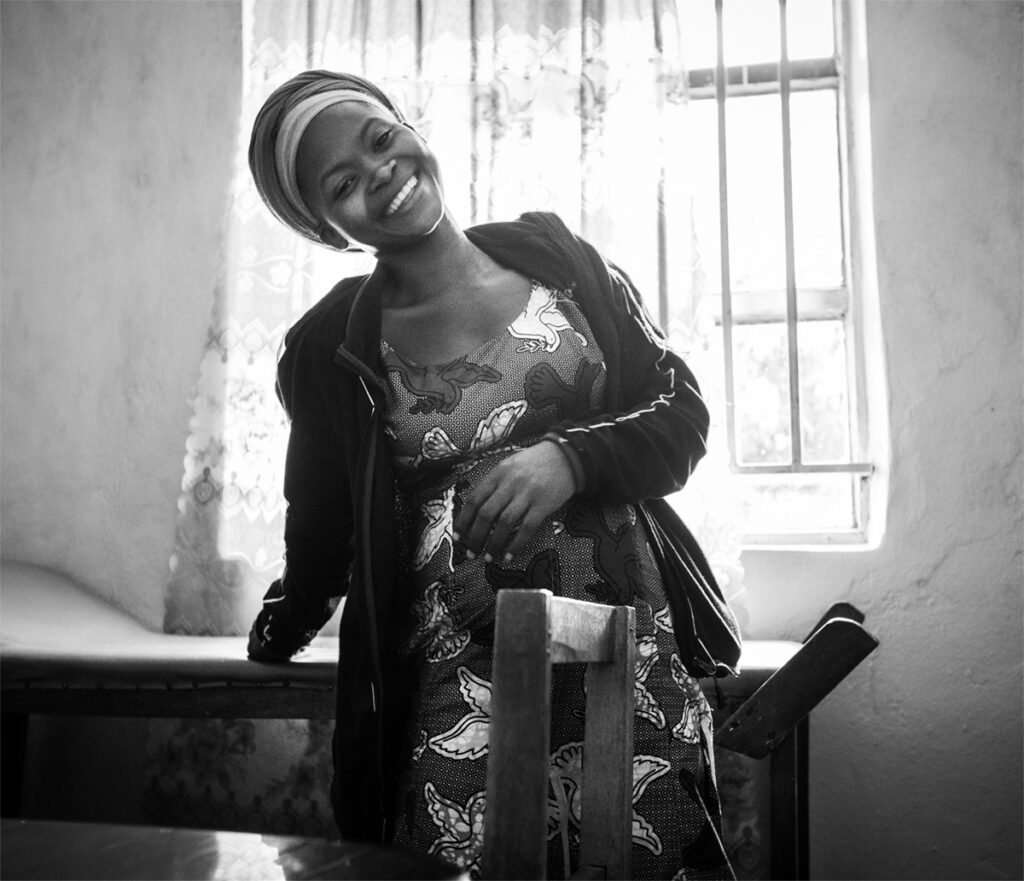
The women of the provinces of South and North Kivu, in the east of the Democratic Republic of Congo, are pillars. Pillars of their family, of their community, of a martyred region of a country where so few things stand upright. They give life, raise their children, manage the small and big worries of the household, work the land, carry out activities that generate income, study…
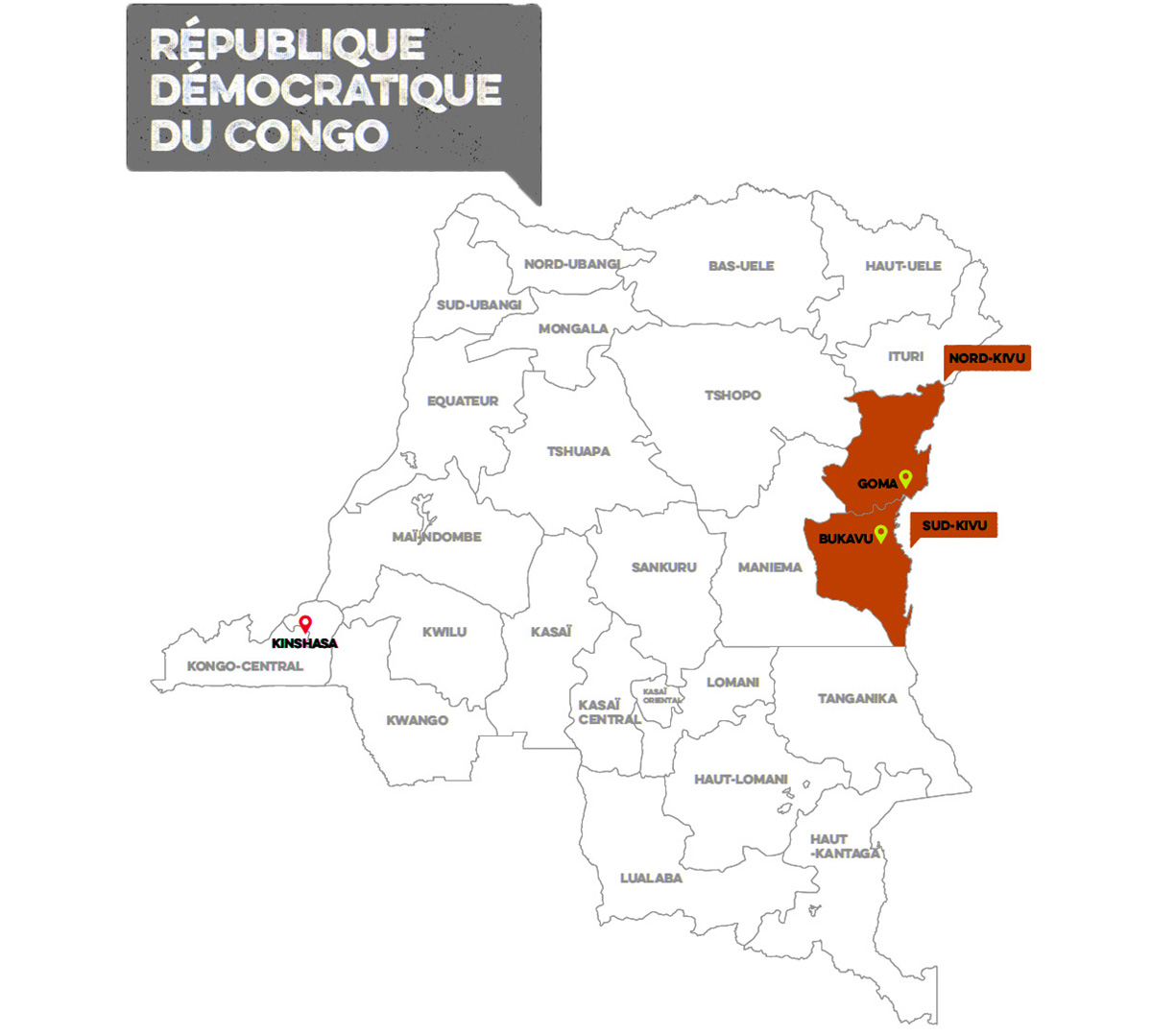
However, these pillars are weakened by the blows they receive, undermining their foundation and that of society.
In a context of abject poverty, the lack of social and socio-economic support condemns a majority of women in eastern Congo to remain permanently connected to the exhausting “survival” mode.
Dr. Denis Mukwege and other less broadcasted stakeholders have been sounding the alarm for two decades about the spread of the scourge of sexual violence, which Congolese and foreign armed groups use as a war weapon, and which is now spreading among the civilian population.
Beyond this terrible phenomenon, the women of the region are, as a whole, the first victims of the state of decay of Congo, which restricts their fundamental right to have access to quality health care.
Health centers are indeed insufficient in number and often difficult to access. They are under-equipped in terms of personnel, equipment and medication, as are many hospitals. Mental health remains a secondary concern, though the ills of the body and mind often go hand in hand.
The consequences of this situation are dramatic: because they are not treated in time, serious pathologies develop; the psychological state and the socio-economic situation of the women who suffer deteriorate, making them even more vulnerable.
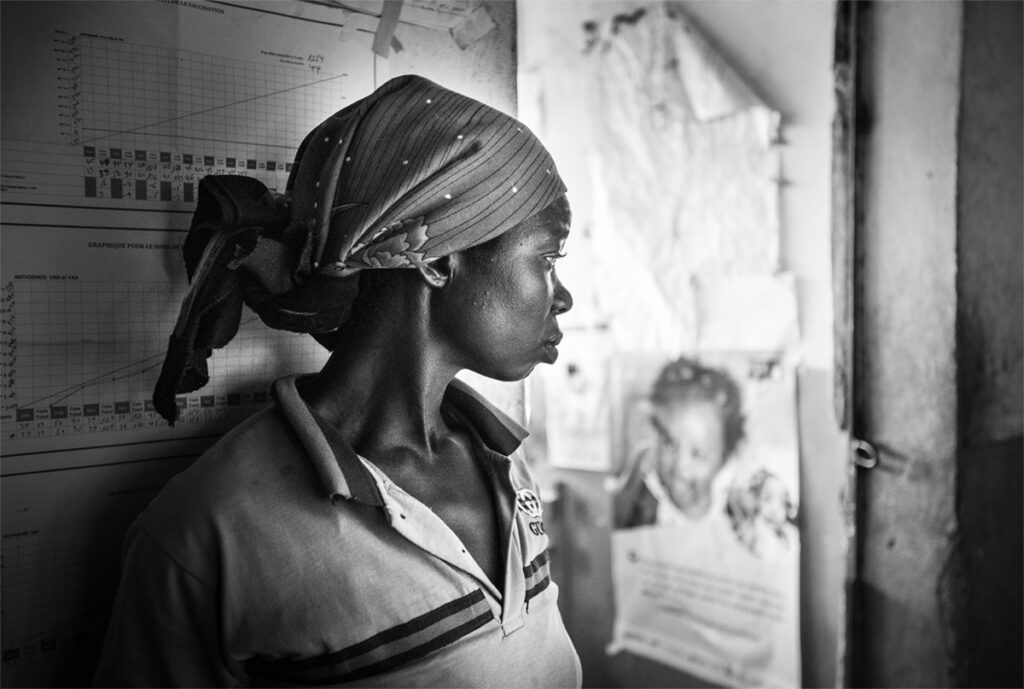
Bogamanda Health Center,
2022
Women who are victims of sexual violence often suffer a double punishment and find themselves excluded from their community. Mediation is an important action process that allows for discussion and unblocking of certain family situations in order to put an end to the ostracism of which these women are victims.
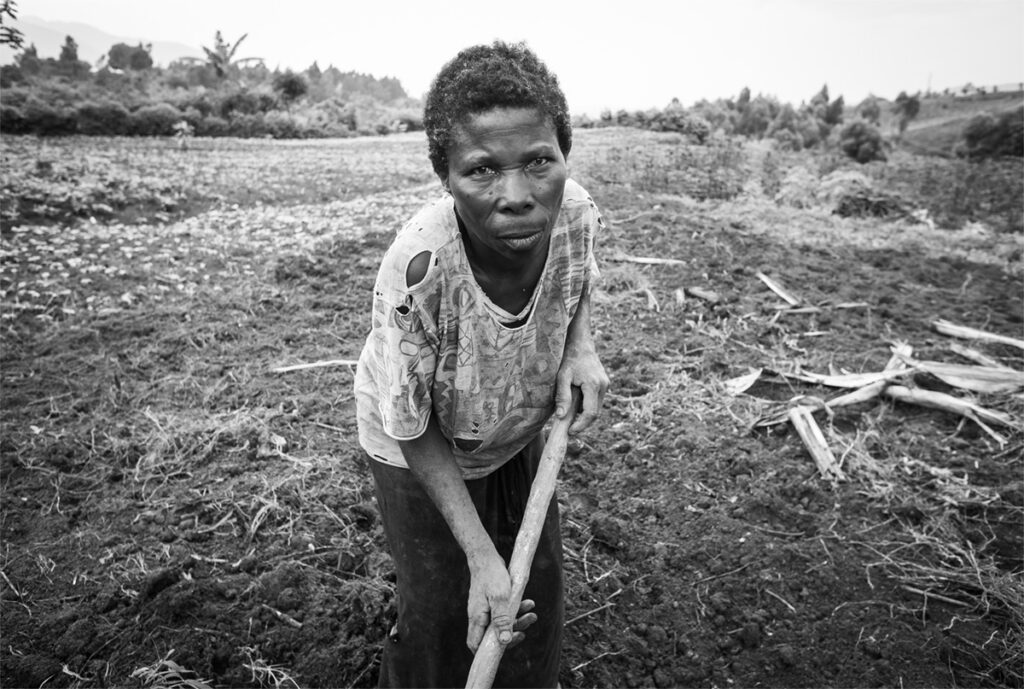
Kalehe Hills,
2022
In the eastern part of the Democratic Republic of Congo, women who work in the fields earn an average of 1 USD per day. The inhabitants are all too aware of the precarious situation in which they live and are calling for changes that the instability of the region prevents from happening.
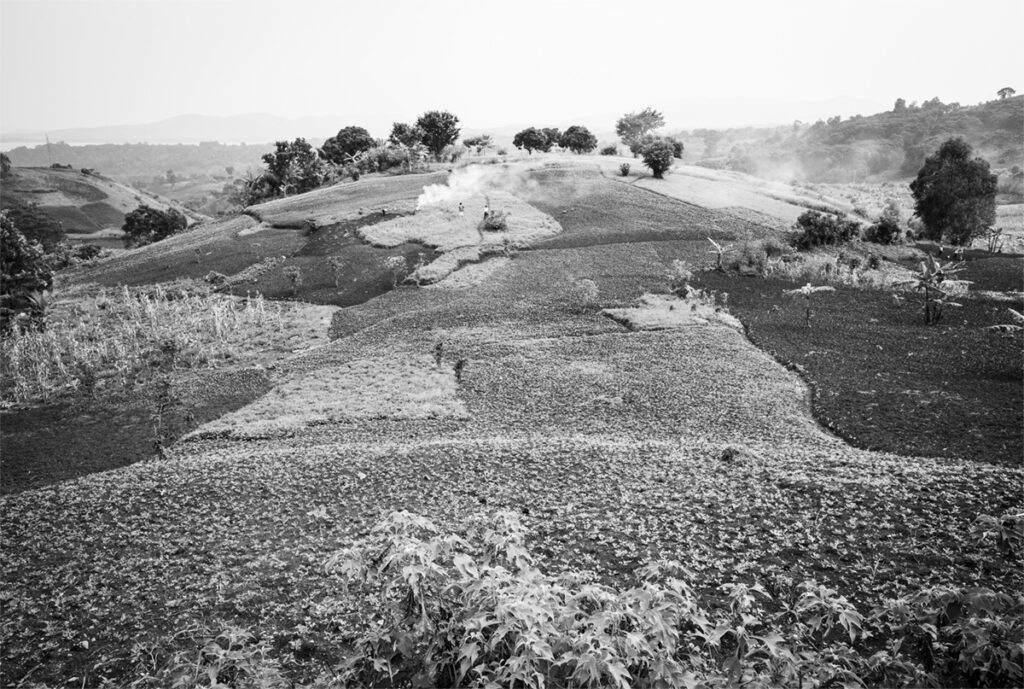
Kalehe Hills,
2022
South Kivu is rich in fertile land. Unfortunately, work in the fields is not only hard, but also poorly paid and dangerous. The women who work the land are under constant threat from
armed Congolese and foreign militias, and even from the regular Congolese army (FARDC), who are guilty of rape.
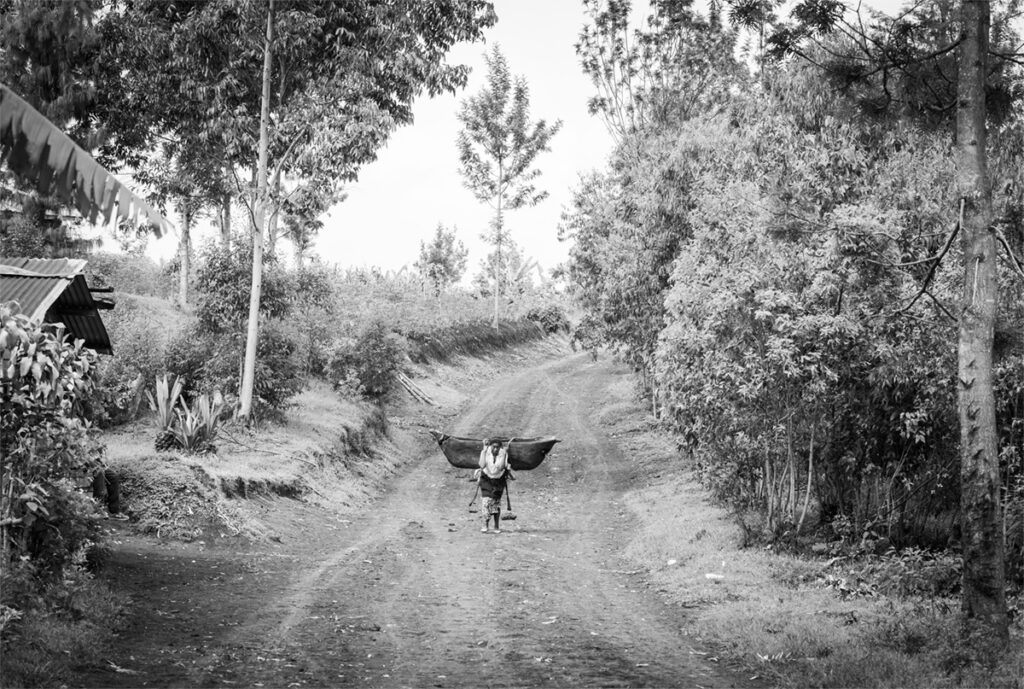
Muganzo, Kabare,
2022
On the road to the Muganzo health center, a woman carries the mukenzi, a wooden vat used to brew ripe bananas to produce the local kasiksi beer.
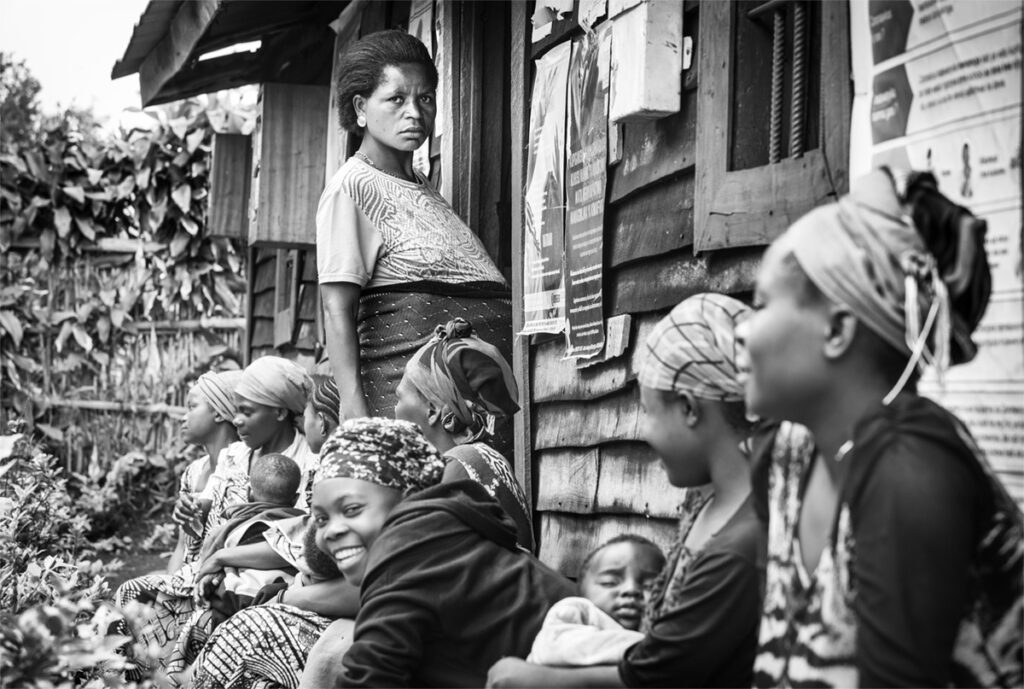
Muganzo Health Center, Kabare,
2022
The entrance to the Muganzo health centre is full on the days dedicated to pre-natal consultations.
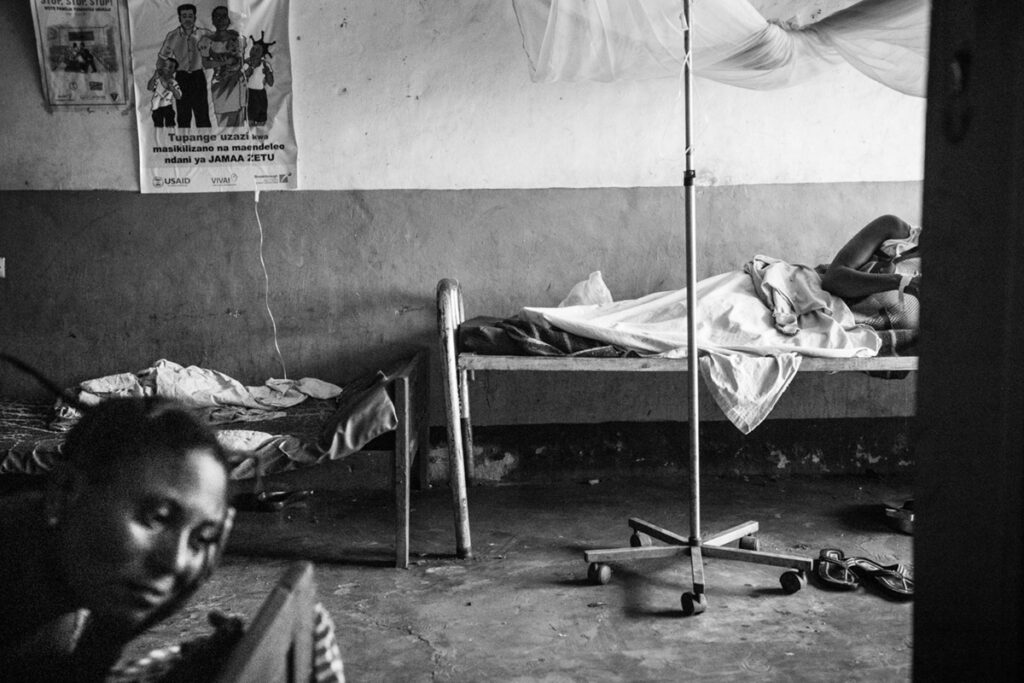
Bogamanda Health Center, Kalehe,
2022
According to the UN agency OCHA, acute respiratory diseases are the second most common cause of death and the second most common disease in South Kivu, after malaria. Areas of high malaria prevalence are mainly areas of armed conflict and hosting of displaced people.
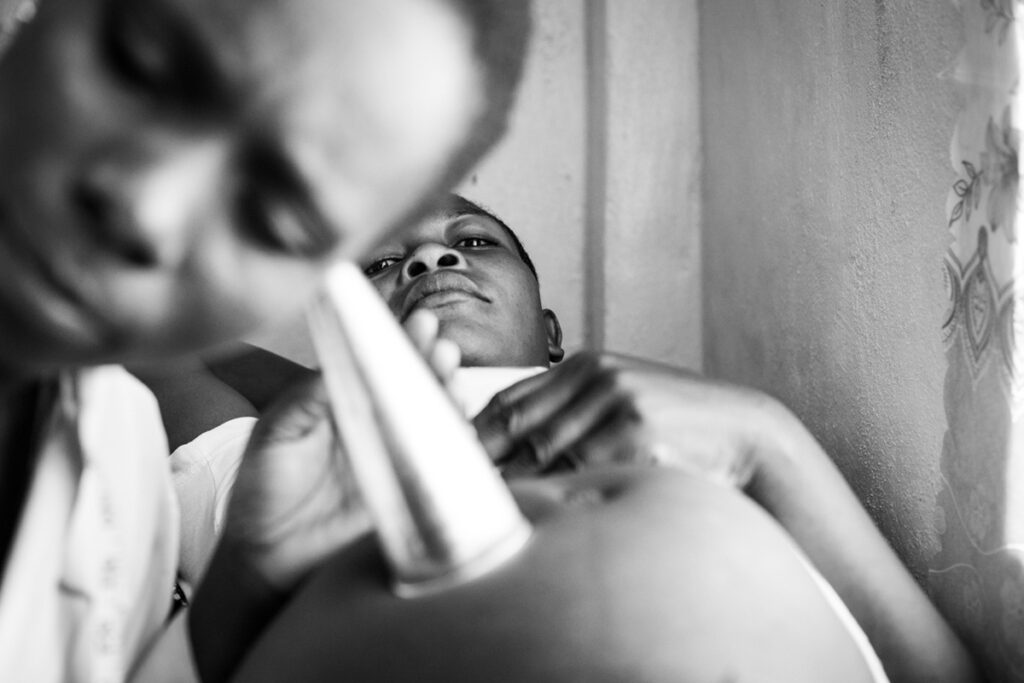
Muganzo Health Centre, Kabare,
2022
The nurse-midwife listens to the baby’s fetal heart during a pre-natal consultation. A new maternity ward that allows women to avoid “giving birth on the floor” has just been built in Muganzo. It was built by the villagers in collaboration with the NGO Memisa and the non-profit organization Action d’Espoir. The local community managed to raise USD 5,000 for the construction, which is a fortune for the inhabitants.
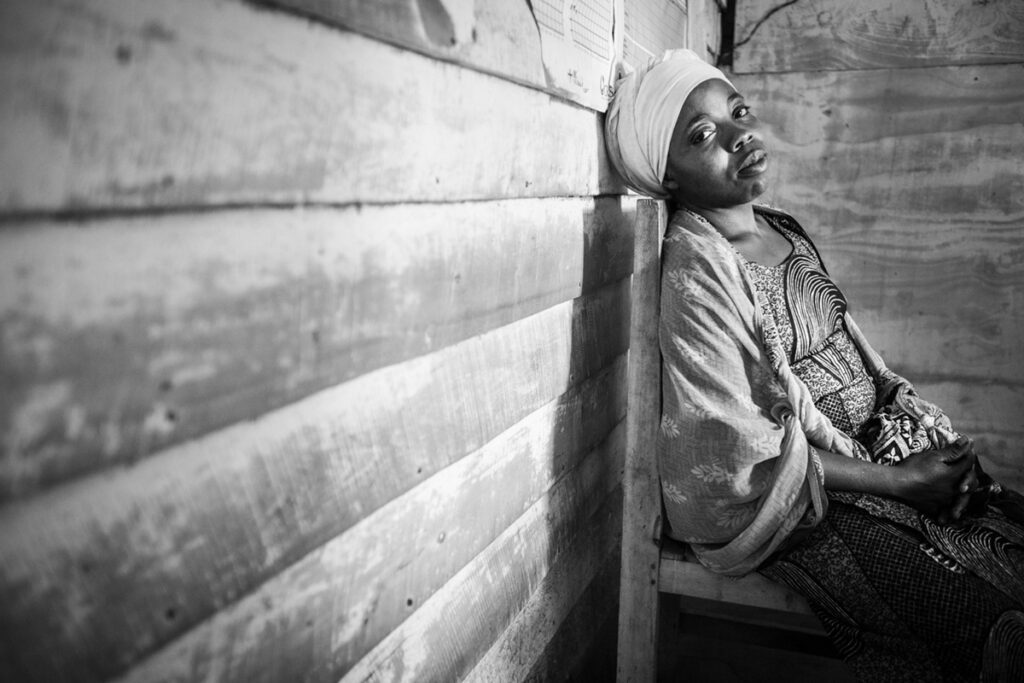
Muganzo Health Center, Kabare,
2022
Patient waiting for medical consultation. According to a study conducted by REACH in 2020, the health situation in South Kivu province is characterized by relatively good physical access to health facilities. In the majority (76%) of the locations assessed, it is reported that the majority of the population goes to a health facility (center, clinic, hospital, etc.) to obtain care.
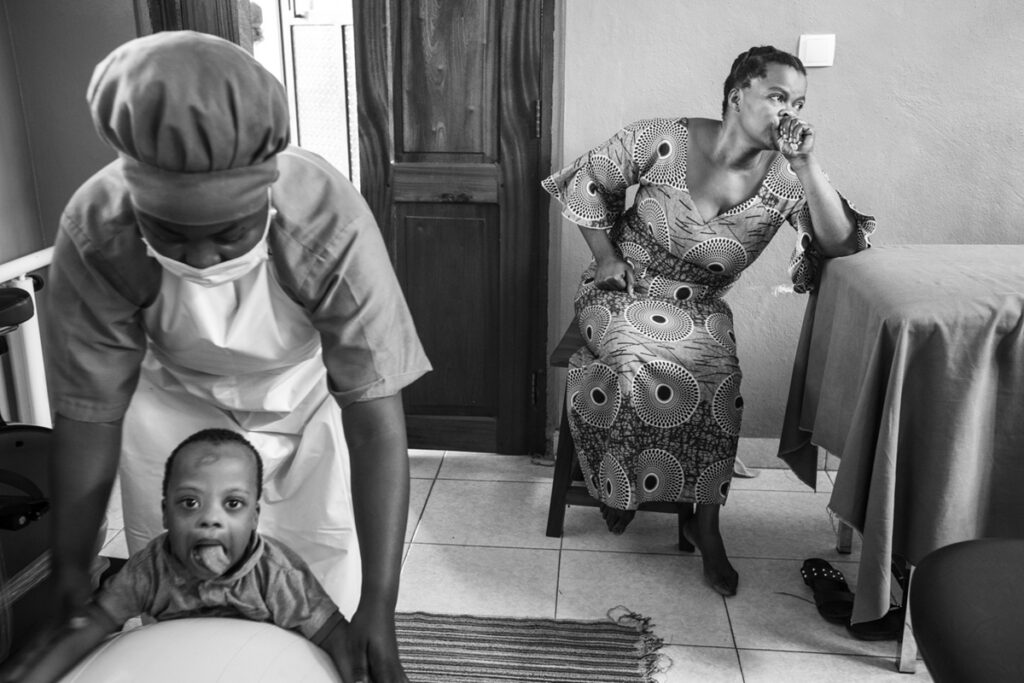
Keshero Health Center, Goma,
2022
While physical therapy is widely available in many countries, it remains rare in the public health care system in the Democratic Republic of Congo. Yet, this type of rehabilitation is essential and contributes to people’s well-being. It is one of the services offered to the public at the Keshero urban medical center in Goma, at rates accessible to the greatest number. Hélène goes there three times a week with her three-year-old son Espoir, who has Down’s syndrome. “The goal is for him to be able to walk,” says Laetitia, the physiotherapist.
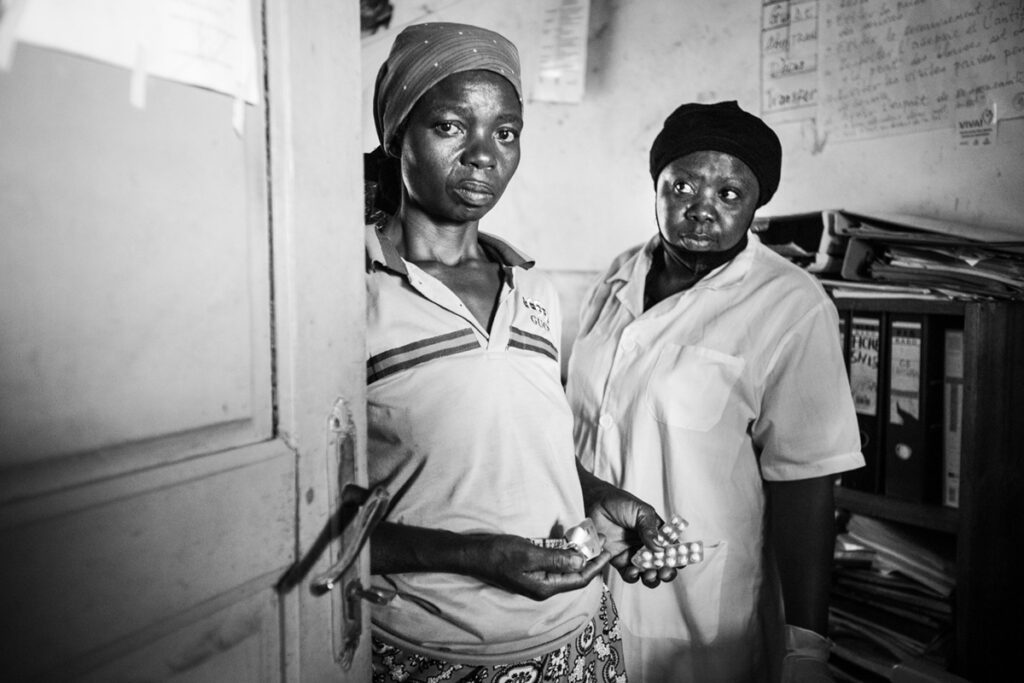
Bogamanda Health Center,
2022
An hour and a half’s drive from Bukavu, Mamas For Africa has set up a reception point and a medical procedure to identify women who need gynecological care delivered in the form of medication or those who need to be referred to the Panzi hospital for surgery.
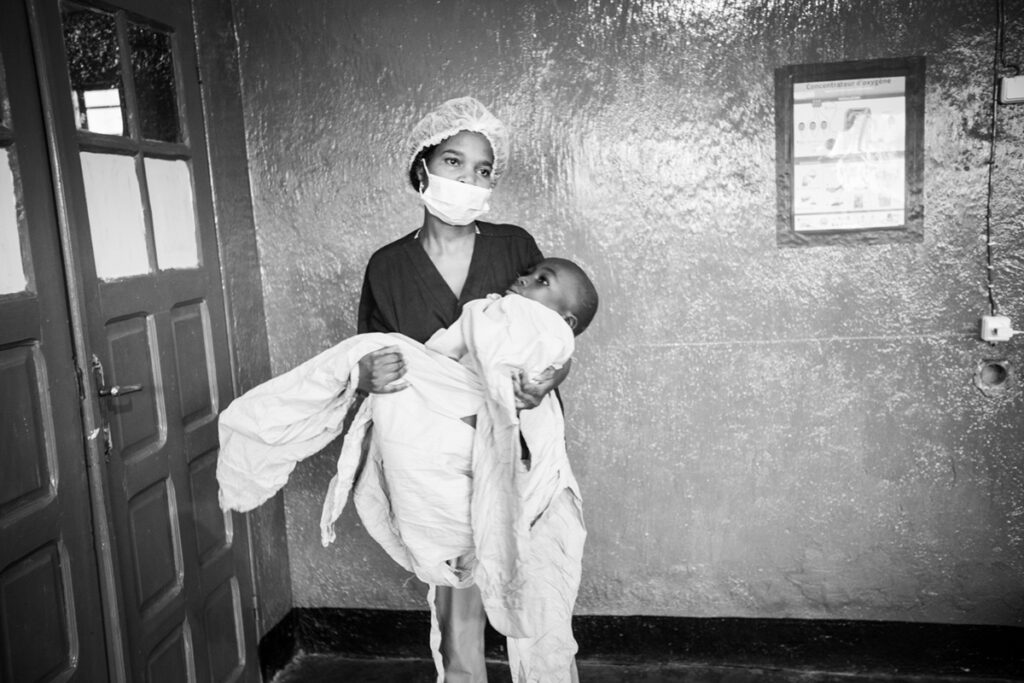
Mubumbano General Reference Hospital,
2022
Deborah is a young general practitioner. She is observing a surgery in order to perfect her training, in the context of a project around surgical assistance organized by Médecins Sans Vacances/Artsen Zonder Vakanties.
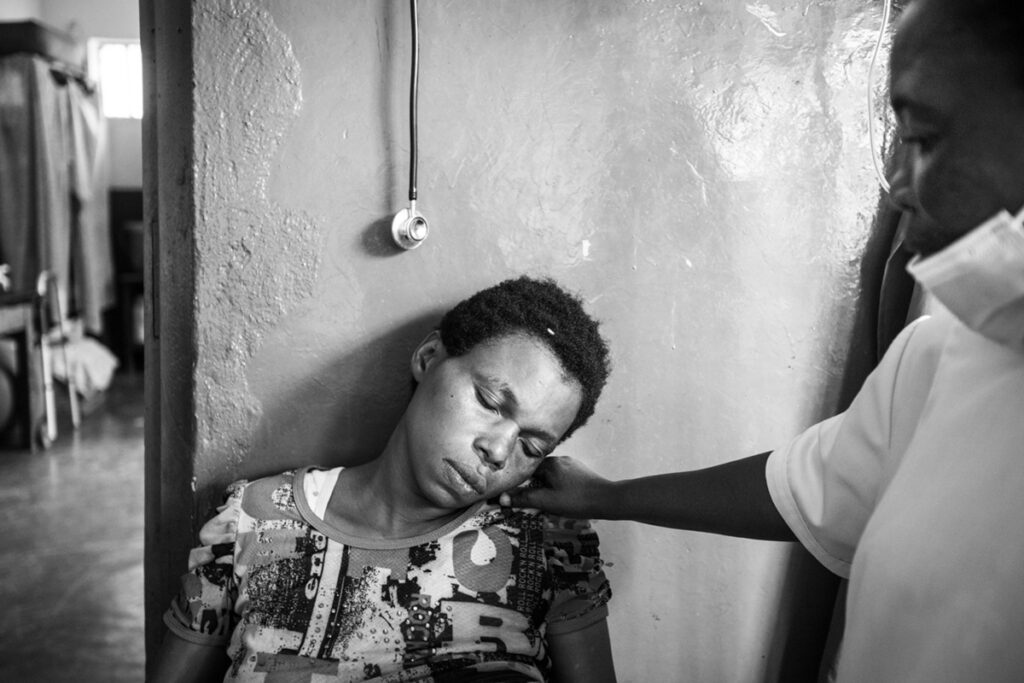
Mubumbano General Reference Hospital,
2022
A woman waits for a C-section at the general reference hospital in Mubumbano.
In 2019, according to the World Bank, the nativity rate (children who are born alive) in DRC was amongst the highest in the world, with 5.82 children per woman.
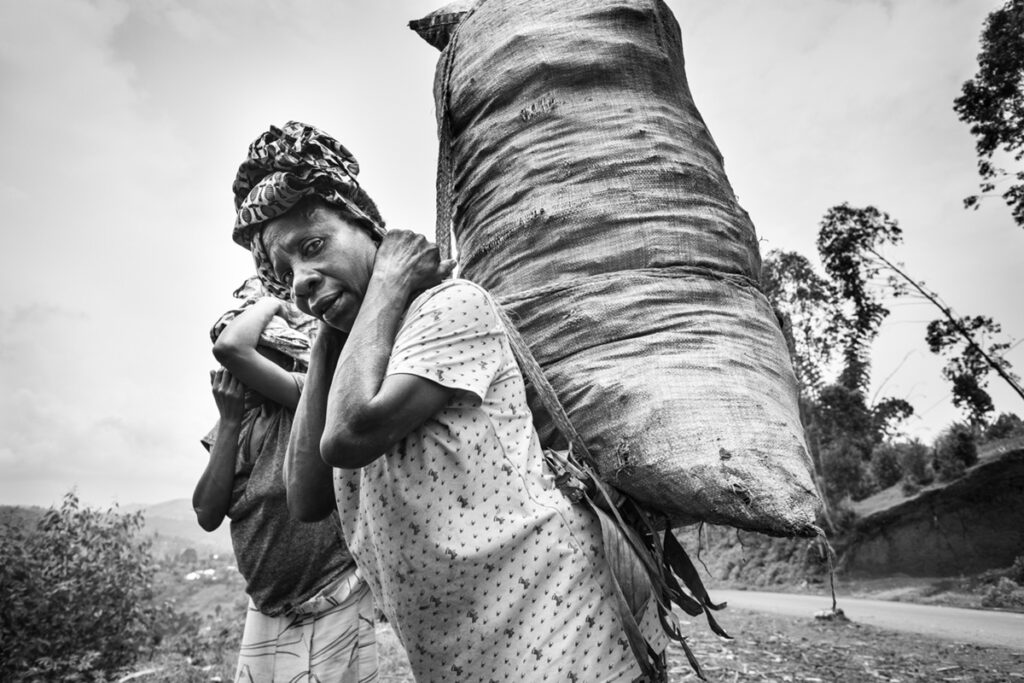
Along the road towards Kavumu,
2022
Many women carry too heavy bags of charcoal, which are often their only source of revenue. A bag is worth around 16 USD. On a long-term basis, carrying such heavy loads can cause gynecological issues such as prolapse (slipping down of organs) due to the loosening or damaging of body structures (ligaments, pelvic muscles or connective tissue).
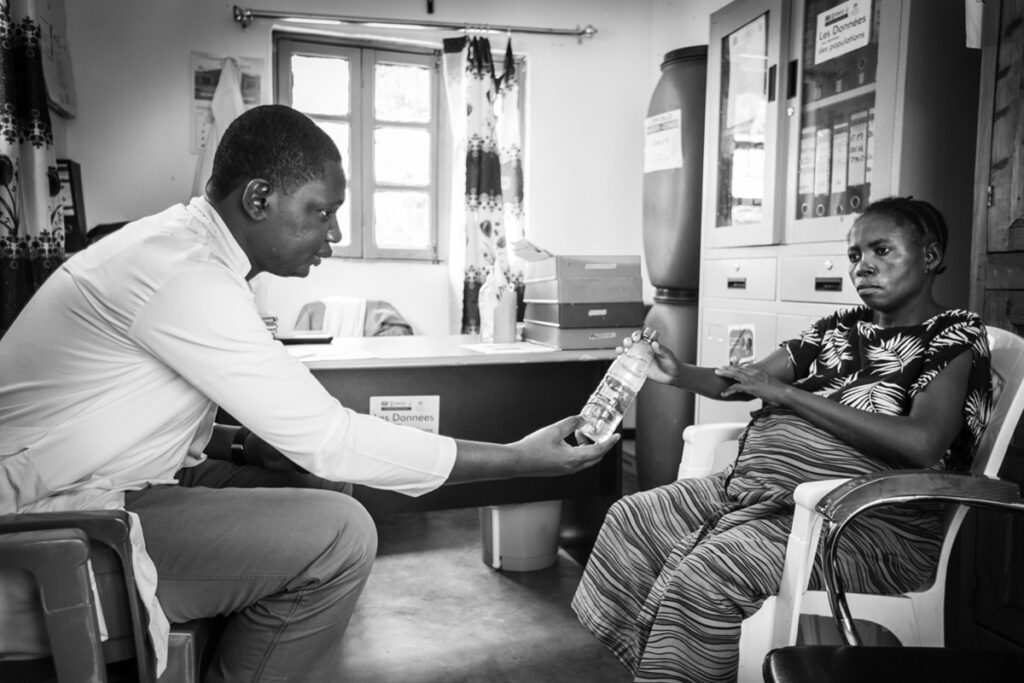
Mugeri Health Center, Katana,
2022
A psychologist from the Medico-psycho-social Support Center (Centre d’Appui Médico-Psycho-Social or CAMPS) takes care of Georgette, who is about to give birth. A bottle of water is handed to her to create trust. The psychosocial supported granted to her should enable her to give birth in good conditions despite her depressive state.
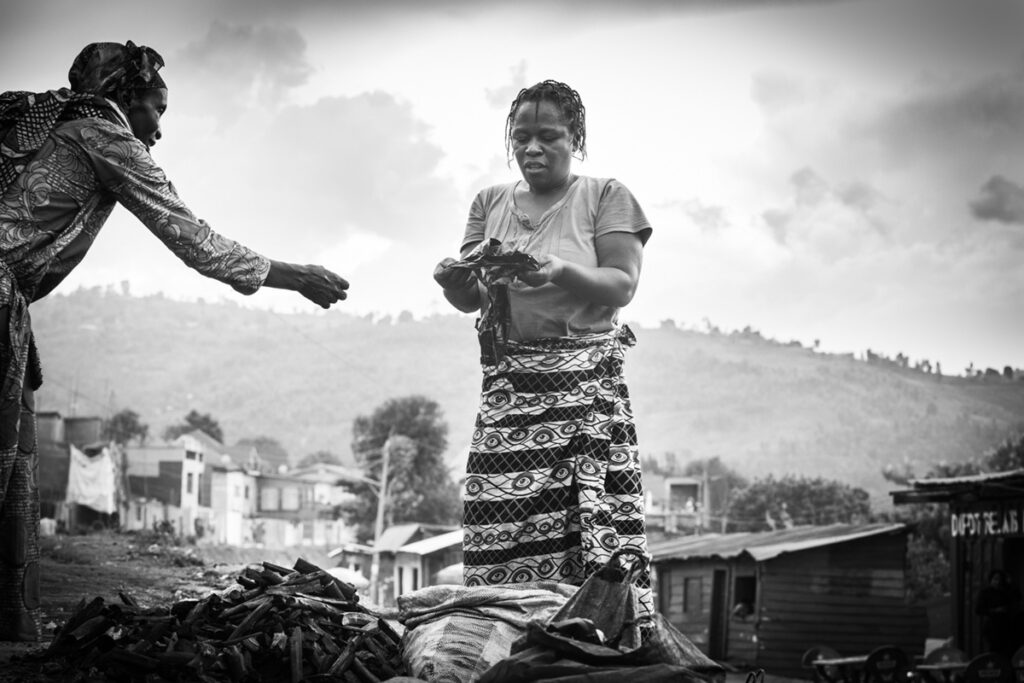
Bagira, Bukavu,
2022
Dalia* lives alone with her two children after having been abandoned by her husband. Thanks to material aid she was given during a family strengthening program managed by SOS Villages d’Enfants, she was able to develop her own economic activity. This has made it possible for her to offer her children school and necessary care.
* Alias name
ACKNOWLEDGEMENT
Maud Adam, Aline Bahati Cibambo, Emma Bangirahe, Vital Barholere, Adélaïde Blavier, Kathryn Brahy, Guy-Bernard Cadière, Marijke Ceyssens, Marie-Noël Cikuru, Martyne Cote, Caroline de Clercq, Véronique De Keyser, Cathleen de Kerchove, Christian Dengis, Clémence Denis, Isabelle Duvigneaud, Emilie de Liamchine, Anne Dechamps, Marie Devreux, Catherine Eeckhoudt, Rémi Fabbri, Julie Godfroid, Muriel Gonçalves, Jan Goossens, Stéphanie Grisard, Françoise Grolleau, Alexandra Guillot, Françoise Hocquet, Sophie Huguenet, Alexander Jacoby, Karlien Jolie, Guy Jungblut, Crispin Kashala, An Lavens, Hubert Leclercq, Ceara Legoff, Jan Leysen, Hervé Lisoir, Christophe Loyen, Yann Mai, Pilar Martinez, Olivier Matumaini, Alejandra Mejia, Nathalie Mignano, Sandrine Morreale, Romain Mukupi, Denis Mukwege, Herman Mukwege, Kabika Mukubwa, Caroline Nallet, Murhabazi Namegabe, Patrick Ndara Bakole, Robert Ndjangala, Delphine Noël, Sifa Ntamwenge, Sophie Omari, Blaise Ombeni, Léa Paccaud, Stéphanie Pécourt, Marc Pecsteen, Daniele Perissi, Lucie Plessis, Fabienne Richard, Michel Riche, Maud Salomé Ekila, Anna Salvati, Julie Simon, Valérie Vandersmissen, Olivier Vanderveeren, Henriette van Hofwegen, Lara Youssef.
Staff of associations and health services in Kivu, patients
